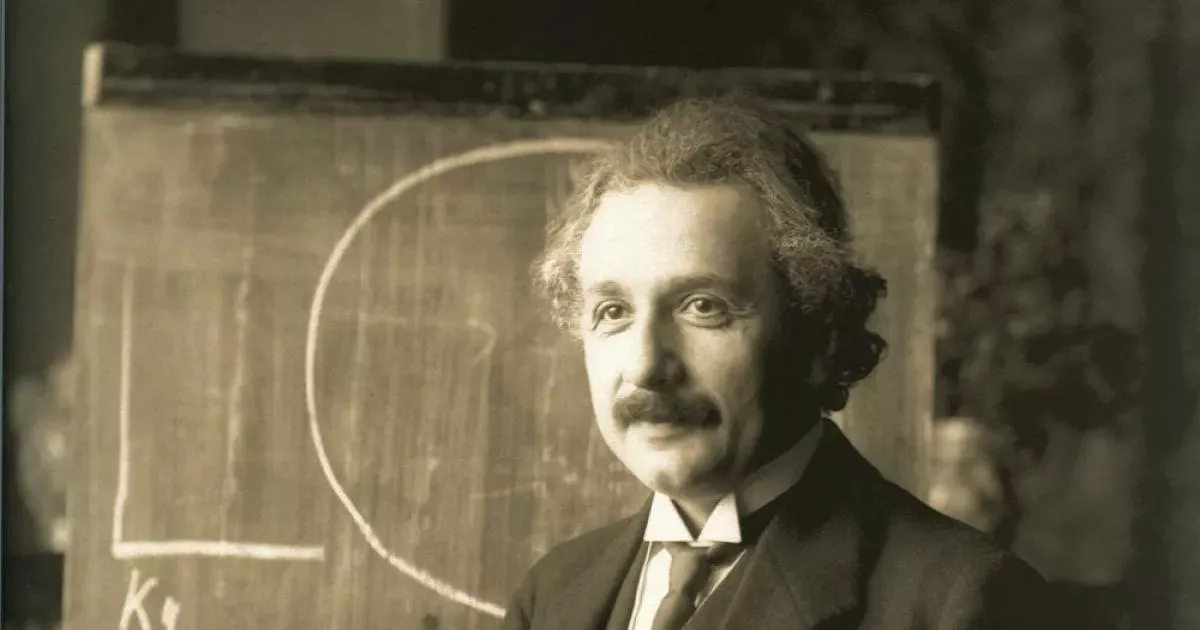A closer look at the lasting mark left by Albert Einstein—a timeline of influence.
Albert Einstein (1879-1955) was a German-born theoretical physicist renowned for his theory of relativity. This included the famous mass-energy equivalence formula, E=mc². He also significantly contributed to the development of quantum mechanics and received the 1921 Nobel Prize in Physics for his explanation of the photoelectric effect. His work revolutionized our understanding of gravity, space, time, and the universe. Einstein is widely considered one of the most influential scientists of the 20th century.
1905: Publication of the Annus Mirabilis papers
In 1905, Albert Einstein published his "Annus Mirabilis" papers in the Annalen der Physik journal. These papers covered the photoelectric effect, Brownian motion, special theory of relativity and the equation E = mc², and contributed substantially to modern physics.
1905: Einstein's Miracle Year
The year 1905 is recognized as Einstein's "miracle year".
November 1919: The Times Reports Revolution in Science
On November 7, 1919, The Times, a leading British newspaper, reported on Eddington's work with the banner headline: Revolution in Science – New Theory of the Universe – Newtonian Ideas Overthrown. This marked the widespread recognition of Einstein's theories.
1919: Confirmation of General Relativity
In 1919, Einstein became a scientific celebrity after the confirmation of his general theory of relativity, gaining widespread recognition and admiration.
1925: Opening of the Hebrew University of Jerusalem
In 1925, the Hebrew University of Jerusalem opened, with Albert Einstein as a figurehead leader in its establishment.
March 1954: Einstein Writes About Vegetarianism
In March 1954, Albert Einstein wrote in a letter about his vegetarian diet, stating he was living without fats, meat, or fish and feeling well, suggesting humans were not born to be carnivores.
1954: Einstein regrets signing letter to Roosevelt
In 1954, Albert Einstein told his friend, Linus Pauling, that he regretted signing the letter to President Roosevelt recommending the creation of atom bombs, but justified it due to the danger of Germany developing them first.
April 1955: Death of Albert Einstein
Albert Einstein died in April 1955. He was a German-born theoretical physicist known for his theory of relativity and contributions to quantum mechanics.
1955: Einstein signs manifesto highlighting danger of nuclear weapons
In 1955, Albert Einstein, along with Bertrand Russell and other intellectuals and scientists, signed a manifesto emphasizing the danger of nuclear weapons.
1955: Mount Einstein (Alaska) Named
Mount Einstein in the Chugach Mountains of Alaska was named in 1955 in honor of Albert Einstein.
1960: Einstein Posthumously Included in World Academy of Art and Science
In 1960, Albert Einstein was posthumously included as a charter member of the World Academy of Art and Science (WAAS), an organization dedicated to the responsible and ethical advances of science, especially concerning nuclear weapons.
December 1965: Oppenheimer's Memorial Lecture on Einstein
On December 13, 1965, J. Robert Oppenheimer delivered a memorial lecture at UNESCO headquarters, summarizing his impression of Albert Einstein as a person of great purity and simplicity.
1970: Mount Einstein (New Zealand) Named
In 1970, Mount Einstein in New Zealand's Paparoa Range was named after Albert Einstein by the Department of Scientific and Industrial Research.
1976: Albert Einstein House Made National Historic Landmark
In 1976, the Albert Einstein House, where he lived in Princeton, was designated as a National Historic Landmark.
1979: Albert Einstein Memorial Unveiling
In 1979, the Albert Einstein Memorial was unveiled outside the National Academy of Sciences building in Washington, D.C., featuring Einstein holding a paper with equations for the photoelectric effect, general relativity, and mass-energy equivalence.
1995: First Experimental Bose-Einstein Condensate
In 1995, Eric Allin Cornell and Carl Wieman produced the first Bose-Einstein condensate experimentally at the NIST-JILA laboratory, using ultra-cooling equipment. This confirms Einstein's predictions of the phenomenon that some particulates should appear at very low temperatures.
1999: Time's Person of the Century
In 1999, Albert Einstein was named Time's Person of the Century.
1999: Greatest Physicist Ever Survey
In 1999, a survey of top 100 physicists voted Albert Einstein as the "greatest physicist ever", while a survey of rank-and-file physicists ranked him second to Isaac Newton.
2005: World Year of Physics
In 2005, the International Union of Pure and Applied Physics declared it the "World Year of Physics", also known as "Einstein Year", in recognition of Einstein's "miracle year" in 1905. It was also declared the "International Year of Physics" by the United Nations.
2006: Publication of Einstein's Letters
In 2006, a volume of Einstein's letters released by Hebrew University of Jerusalem revealed information about other women with whom he was romantically involved.
2013: Discovery of Einstein's Steady-State Model Consideration
In late 2013, Cormac O'Raifeartaigh's team discovered evidence that Einstein considered a steady-state model of the universe after learning of Hubble's observations.
December 2014: Release of Einstein's Papers
On December 5, 2014, universities and archives announced the release of Albert Einstein's papers, comprising more than 30,000 unique documents.
September 2015: Confirmation of Einstein's Prediction of Gravitational Waves
In February 2016, researchers at LIGO confirmed Einstein's prediction by publishing the first observation of gravitational waves, detected on Earth on September 14, 2015, nearly a century after the prediction.
2015: Right of Publicity Lawsuit
In 2015, Einstein's right of publicity was litigated in a federal district court in California, with the Hebrew University of Jerusalem as the exclusive representative. The claims were ultimately settled.
February 2016: Confirmation of Einstein's Prediction of Gravitational Waves
In February 2016, researchers at LIGO confirmed Einstein's prediction by publishing the first observation of gravitational waves, detected on Earth on September 14, 2015, nearly a century after the prediction.
Mentioned in this timeline

The White House located at Pennsylvania Avenue NW in Washington...
California is a U S state on the Pacific Coast...
India officially the Republic of India is a South Asian...
New Zealand is an island country in the southwestern Pacific...

Washington D C is the capital city and federal district...
Germany officially the Federal Republic of Germany is a nation...
Trending
16 minutes ago Rugby Property Assets acquires Cavendish Walk Shopping Centre in Merseyside for £1.5m.
1 hour ago Medvedev, Bublik, and Rublev advanced; Medvedev seeks rankings change in Dubai.

1 hour ago Lauren Chapin, 'Father Knows Best' Child Star, Passes Away at 80
2 hours ago Tim NeCastro Announces Retirement as Erie Insurance CEO After 10 Years

1 hour ago Scientists speculate on insights from government's UFO files release directed by Trump.

4 hours ago Apple MacBook Pro: Touchscreen, Dynamic Island, and New Interface Coming Soon.
Popular

Jesse Jackson is an American civil rights activist politician and...

Susan Rice is an American diplomat and public official prominent...

Barack Obama the th U S President - was the...

Michael Joseph Jackson the King of Pop was a highly...

XXXTentacion born Jahseh Dwayne Ricardo Onfroy was a controversial yet...

Bernie Sanders is a prominent American politician currently serving as...
